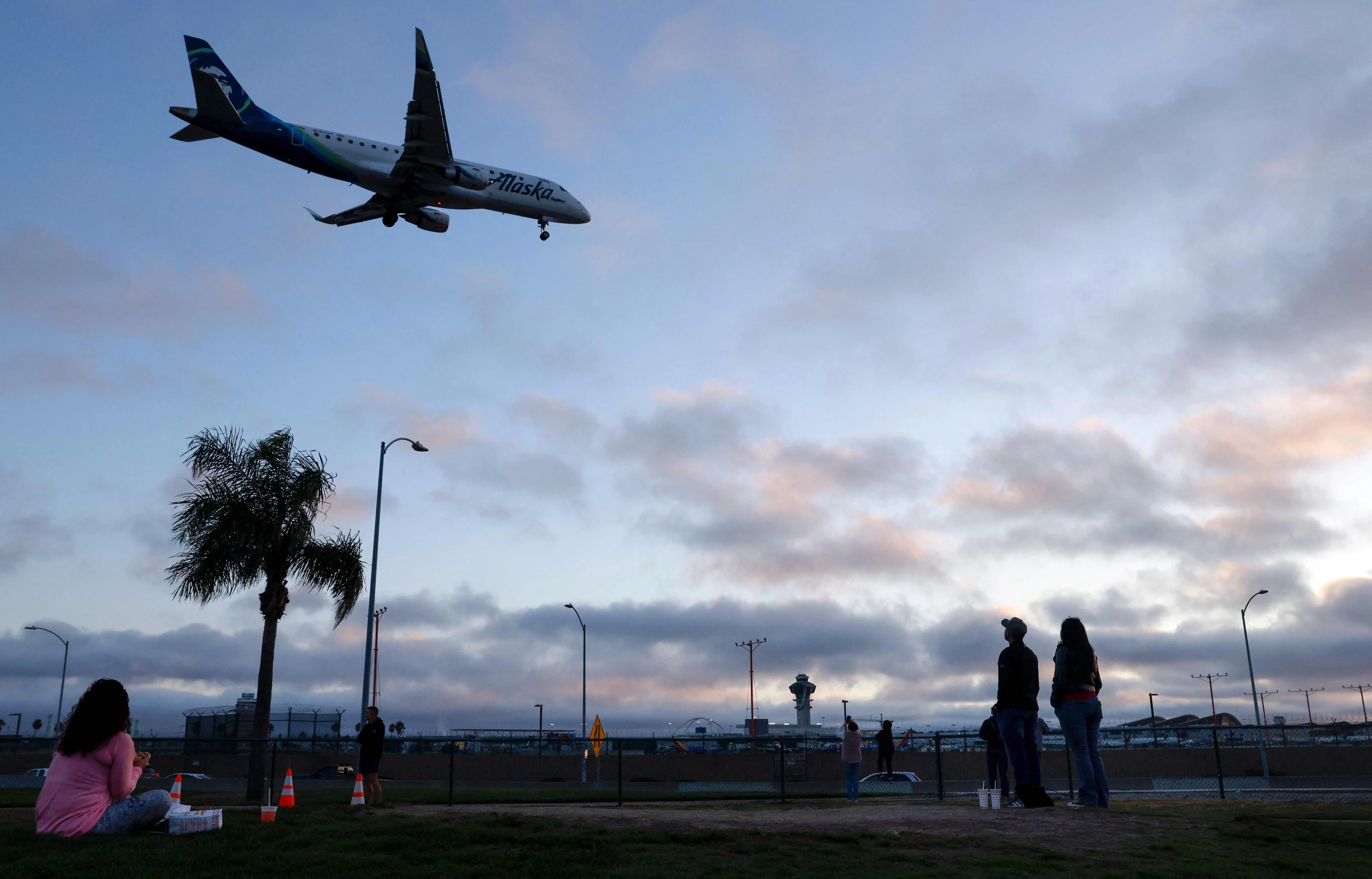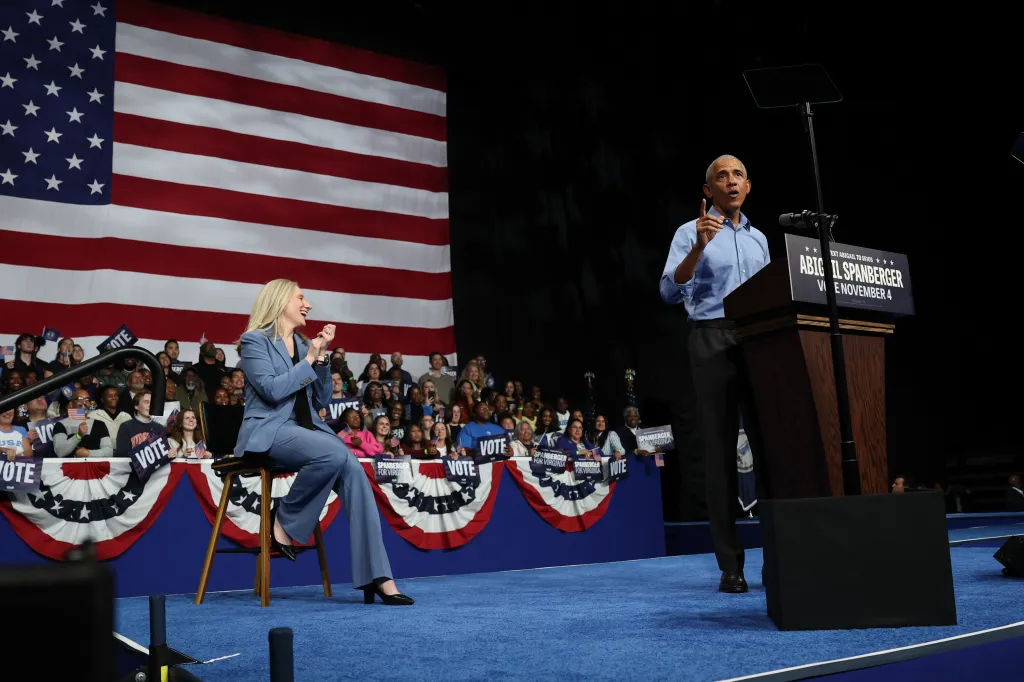Copyright scmp

Hundreds of flights were cancelled across the United States on Friday after the Trump administration ordered reductions to ease strain on air traffic controllers who are working without pay amid congressional paralysis on funding the US budget. Forty airports were due to slow down, including the giant hubs in Atlanta, Newark, Denver, Chicago, Houston and Los Angeles. With Republicans and Democrats in a bitter stand-off over spending priorities, including over healthcare, Congress has ground to a standstill, leaving the entire federal funding spigot closed. Vast numbers of government employees, including vital airport staff, are working either without pay or are at home furloughed, waiting for the now nearly six-week crisis to end. The impact remained unclear early on Friday, with the flight reductions due to take effect gradually, starting at four per cent and rising to 10 per cent next week if Congress still hasn’t reached a funding deal. More than 800 flights scheduled for Friday were cancelled, according to tracking website FlightAware, which would be more than the previous three days combined. Aviation analytics company Cirium said three per cent of US flights had been cancelled so far. This isn’t about politics, it’s about assessing the data and alleviating building risk in the system Sean Duffy, US Transportation Secretary Sean Duffy The upheaval means ordinary Americans are now directly aware of the impacts from the fight in Washington, where the funding shutdown began October 1, increasing pressure on both parties. “This isn’t about politics, it’s about assessing the data and alleviating building risk in the system,” said US Transportation Secretary Sean Duffy, pushing back against criticism that the order aims to increase pressure on Democrats to end the shutdown. Airlines directed passengers with plans into the weekend to check apps to learn their flight status. Some passengers scrambled to find alternatives to flying. Car rental company Hertz is reporting a sharp increase in one-way rentals. One-way reservations have spiked more than 20 per cent through the weekend, compared with the same period last year. “We join the airlines in urging Congress to swiftly pass a clean continuing resolution and restore certainty for travellers,” wrote Hertz CEO Gil West. “Every day of delay creates unnecessary disruption.” Fears of accidents The most affected airports so far were Chicago O’Hare, Hartsfield-Jackson in Atlanta, Denver and Dallas-Fort Worth, according to data analysed by Agence France-Presse. American Airlines said in a statement that its scheduled reduction amounted to 220 flight cancellations each day. Delta Air Lines said it was cutting about 170 flights scheduled for Friday, while broadcaster CNN reported Southwest Airlines cut around 100 flights set for that day. More than 6,800 US flights were delayed on Thursday with some 200 cancellations, FlightAware data showed, with passengers facing long lines at security checkpoints. Travellers at Boston and Newark airports also faced average delays of more than two hours, and those at Chicago’s O’Hare and Washington’s Reagan National faced delays of more than an hour. Authorities said they wanted to act before an accident occurred. “We’re not going to wait for a safety problem to truly manifest itself, when the early indicators are telling us we can take action today to prevent things from deteriorating,” said US Federal Aviation Administration (FAA) Administrator Bryan Bedford. The FAA said the cutbacks were necessary to relieve pressure on air traffic controllers who have been working without pay for more than a month. Many are pulling six-day work weeks with mandatory overtime, and increasing numbers of them have begun calling out as the financial strain and exhaustion mount. “You can’t expect people to go into work when they’re not getting a pay cheque,” said Kelly Matthews of Flat Rock, Michigan, a frequent business traveller who has cancelled most of her coming trips. “I mean, it’s not a matter of them not wanting to do the job – but you can’t afford to pay for gas, your day care and everything else.” Peak travel season The reduction measures come as the country enters its busiest travel time of the year, with the Thanksgiving holiday just weeks away. Millions of Americans are likely to face travel chaos amid a shortage of air traffic control personnel, although US President Donald Trump’s administration sought to reassure people that flying remains safe. “It’s safe to fly today, tomorrow, and the day after because of the proactive actions we are taking,” Duffy said on social media late on Thursday. But many in high-stress aviation-related jobs are now calling in sick and potentially working second jobs to pay their bills, Duffy said on Wednesday. FAA Administrator Bedford said the situation was unprecedented. “I am not aware in my 35-year history in the aviation market where we’ve had a situation where we’re taking these kinds of measures,” he said on Wednesday. Bedford added: “Then again, we’re in new territory in terms of government shutdowns.” Airlines said they would try to minimise the impact on customers. Some planned to focus on slashing routes to and from small and medium-sized cities. Carriers are required to refund customers whose flights are cancelled but not to cover secondary costs such as food and hotel accommodation unless a delay or cancellation results from a contributing factor that is within the control of the airlines, according to the Department of Transportation. Industry analyst Henry Harteveldt warned that the reductions will “have a noticeable impact across the US air transportation system”. The cuts could also slow package service as two airports on the list are major distribution centres for delivery companies: FedEx in Memphis, Tennessee, and UPS in Louisville, Kentucky, the site of this week’s deadly cargo plane crash.



